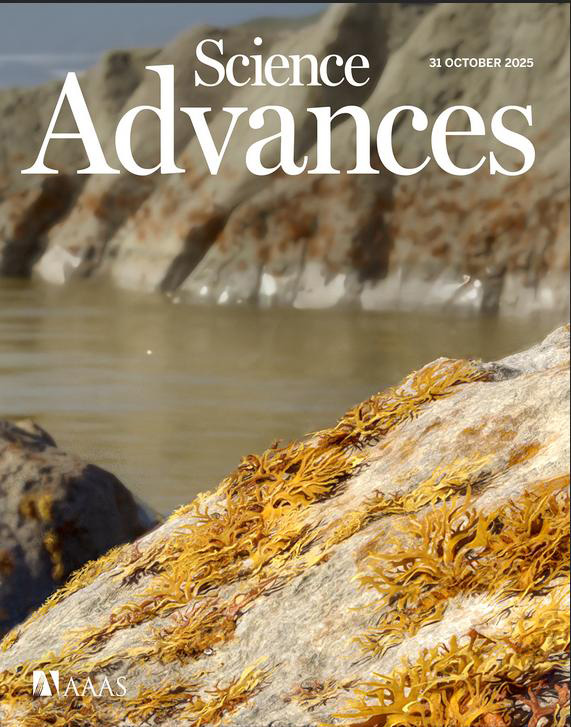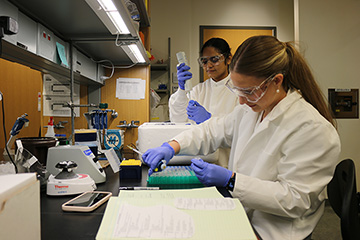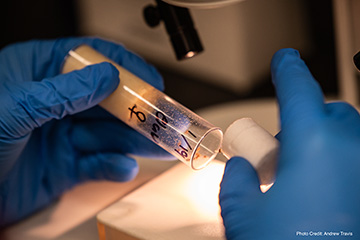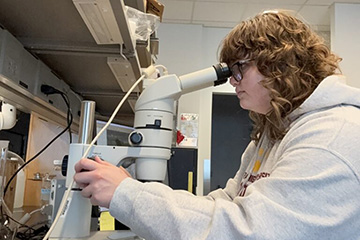CMU faculty research featured on cover of Science Advances
Two Central Michigan University faculty members, Dr. Valeri Petkov (Physics) and Dr. Anthony Chappaz (Earth and Atmospheric Sciences & Translational Accelerator), contributed to a groundbreaking study recently featured on the front cover of Science Advances.

The published paper, titled “The Rise of Lichens During the Colonization of Terrestrial Environments,” explores how ancient organisms dramatically transformed Earth’s environment. The study’s first author, Dr. Bruno Becker-Kerber, now at Harvard University, spent 1.5 years at CMU as a postdoctoral fellow in Dr. Petkov’s research group and at the STARLAB directed by Dr. Chappaz.
The research reveals that lichens and other early life forms were active more than 400 million years ago, thriving long before the emergence of trees, flowers, or modern soils. By tracing the long-term biological transformations of Earth’s surface, the study offers new insight into how life not only adapted to, but fundamentally reshaped, the planet’s atmosphere, geology, and ecosystems.
“These ancient organisms moved beyond simple survival to become planetary engineers,” the authors explained. “They paved the way for soil formation, carbon cycling, and the rise of more complex terrestrial ecosystems. This isn’t just about discovering when life appeared, it’s about understanding how life’s earliest forms rewrote the rules of the Earth system, creating new habitats, new geochemical processes, and ultimately new possibilities for what the world could become.”
The paper also connects these findings to today’s challenges, emphasizing that understanding how early organisms reshaped the planet can inform modern studies of Earth’s resilience, habitability, and environmental change.
Dr. Petkov and Dr. Chappaz are proud to have contributed to this pioneering research. You can read the full article in Science Advances.




